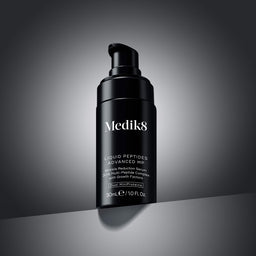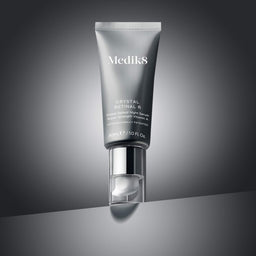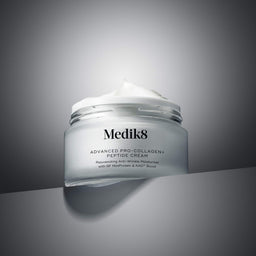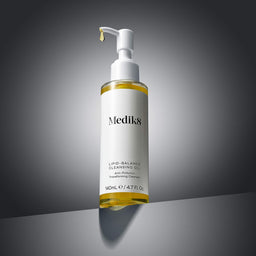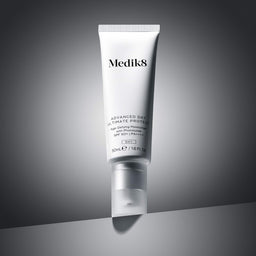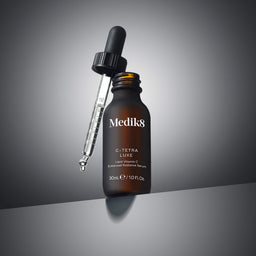The Role of Collagen in Skincare
Written by: Radhika Sen
Updated on: 24th September 2025
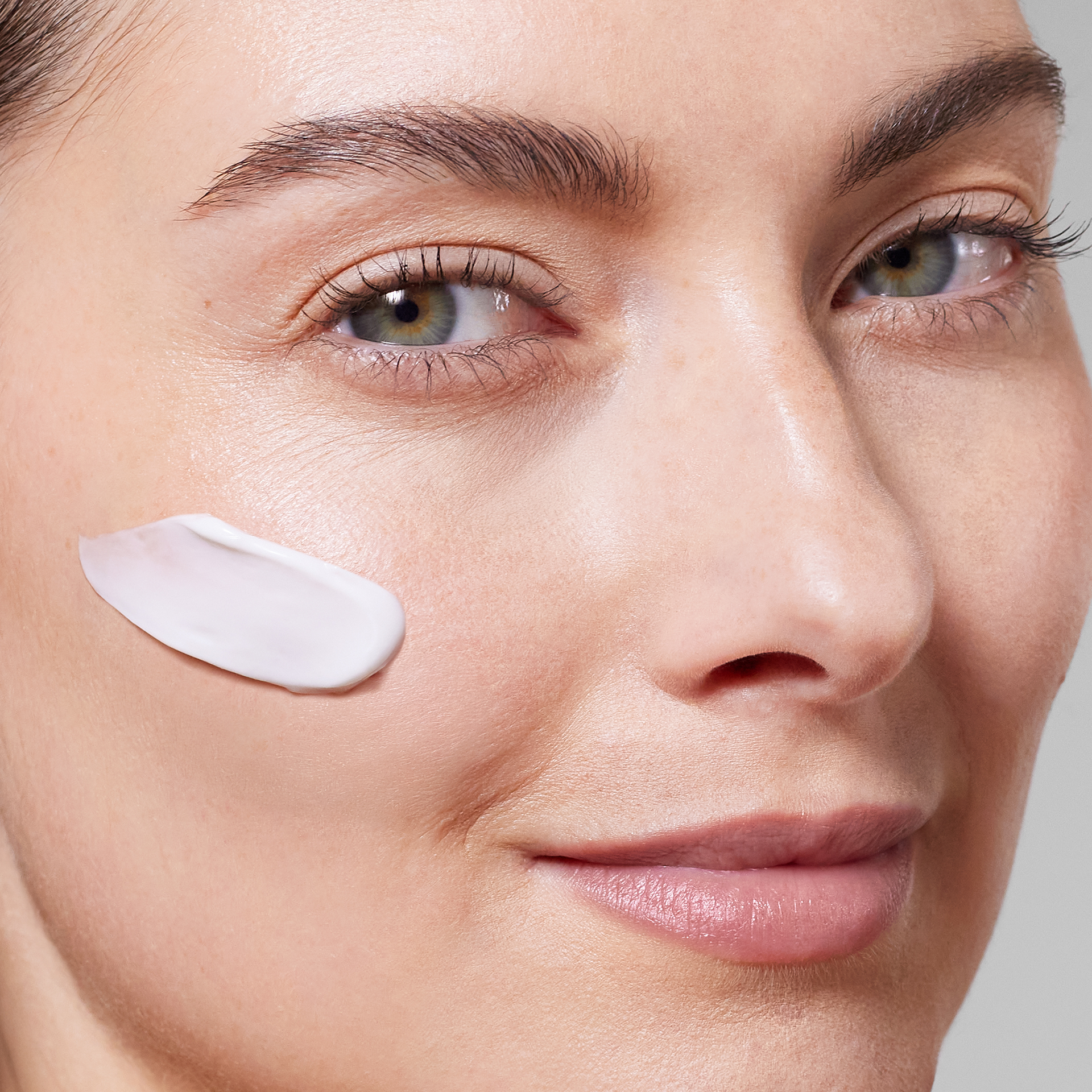
Collagen is the skin’s structural protein, the very framework that keeps our complexion smooth, plump and youthful-looking. But as we age, our natural collagen levels steadily decline. It’s no surprise, then, that collagen has become such a hot topic in skincare, with countless products promising to “boost” or even “replenish” collagen.
With anti-ageing a leading concern for many, you’ve probably already come across the buzz around collagen-based formulas. Yet not all claims are created equal, and it can be tricky to cut through the noise. In this article, we’ll explore what collagen really is, the benefits it delivers for skin, and how to support it effectively through skincare - with Medik8 helping to demystify what it means when products say they can stimulate collagen.
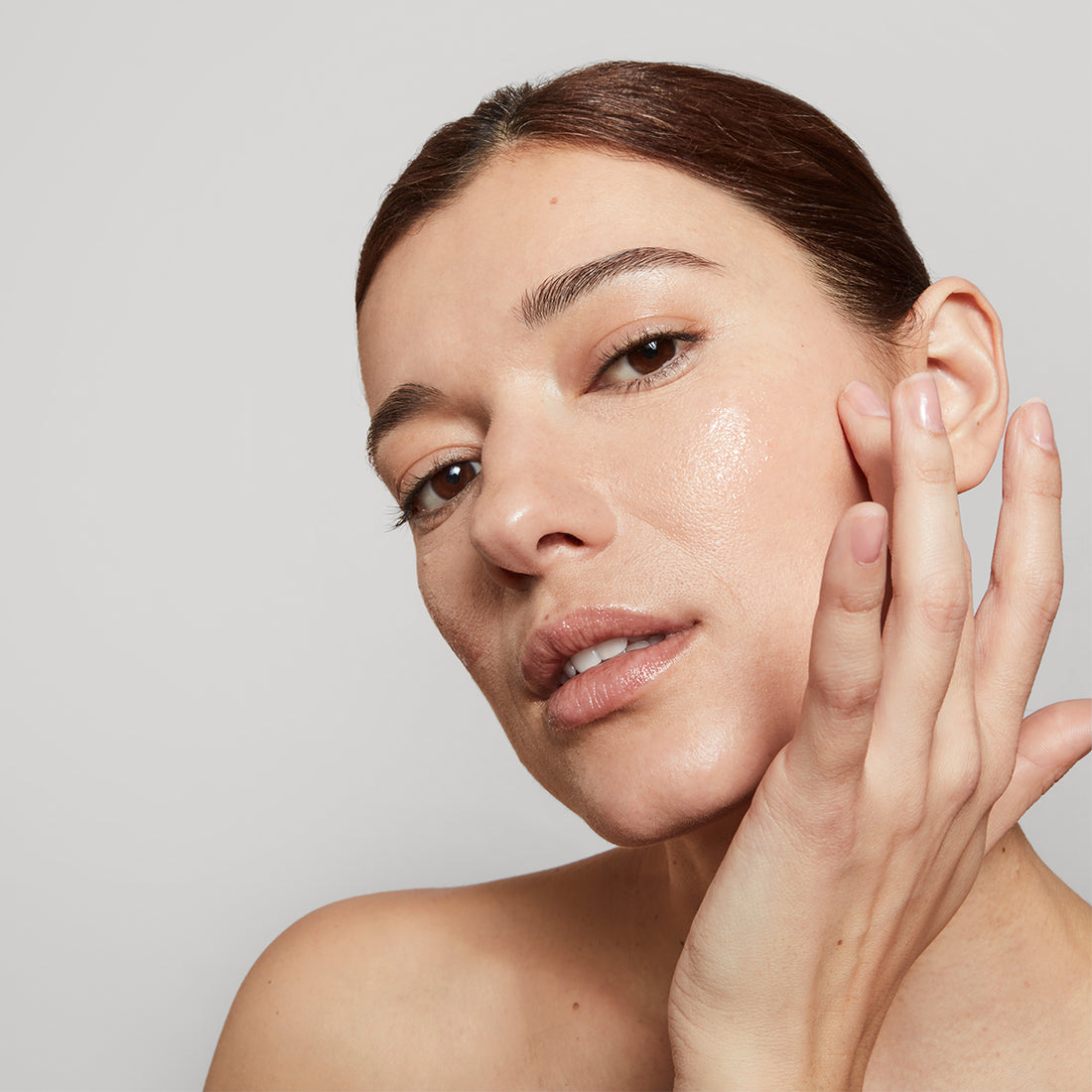
What is collagen?
Collagen is the most abundant protein in the human body, acting as the main building block for skin, bones, muscles, tendons, ligaments, and even hair. Within the skin, collagen is produced naturally in the dermis - the middle layer - where specialised cells create fibres that provide strength, elasticity, and structure. Think of it as the skin’s scaffolding, helping to keep the surface smooth, plump and firm. However, this vital protein isn’t limitless: collagen production gradually slows with age, leading to visible changes in the skin’s appearance.
The different types of collagen
There are at least 28 types of collagen in the body, but only a few play a major role in skin health and visible ageing.
Type I collagen is the most abundant, accounting for around 90% of the body’s total collagen. It’s the primary structural collagen in the skin, providing firmness, strength, and resilience; the hallmarks of youthful skin.
Type III collagen works closely alongside Type I. It’s essential for maintaining skin elasticity and suppleness, especially in younger skin, and plays a key role in wound healing.
Type IV collagen, meanwhile, is found deeper within the skin’s architecture (forming part of the basement membrane that connects the outer and inner skin layers). While it doesn't contribute directly to firmness or elasticity, it plays an essential role in skin barrier function and cohesion.
Less talked about but equally important, Type V collagen works behind the scenes to organise and regulate the formation of collagen fibres; ensuring Types I and III are properly structured and stabilised within the skin. It’s a key player in maintaining the integrity and function of the skin’s support network.
While each type has its own role, together they form the supportive network that gives skin its plump, healthy appearance.
What collagen does for your skin (and why it matters)
A smooth, plump and youthful-looking complexion starts with a strong internal support system. That support comes from collagen fibres. These structural proteins keep skin feeling firm, elastic, and resilient. But as collagen naturally declines with age, you may notice skin becoming drier, thinner and less supple, often showing signs of sagging, fine lines, and wrinkles. Collagen also plays a key role in skin repair and regeneration, helping to maintain strength against daily stressors.
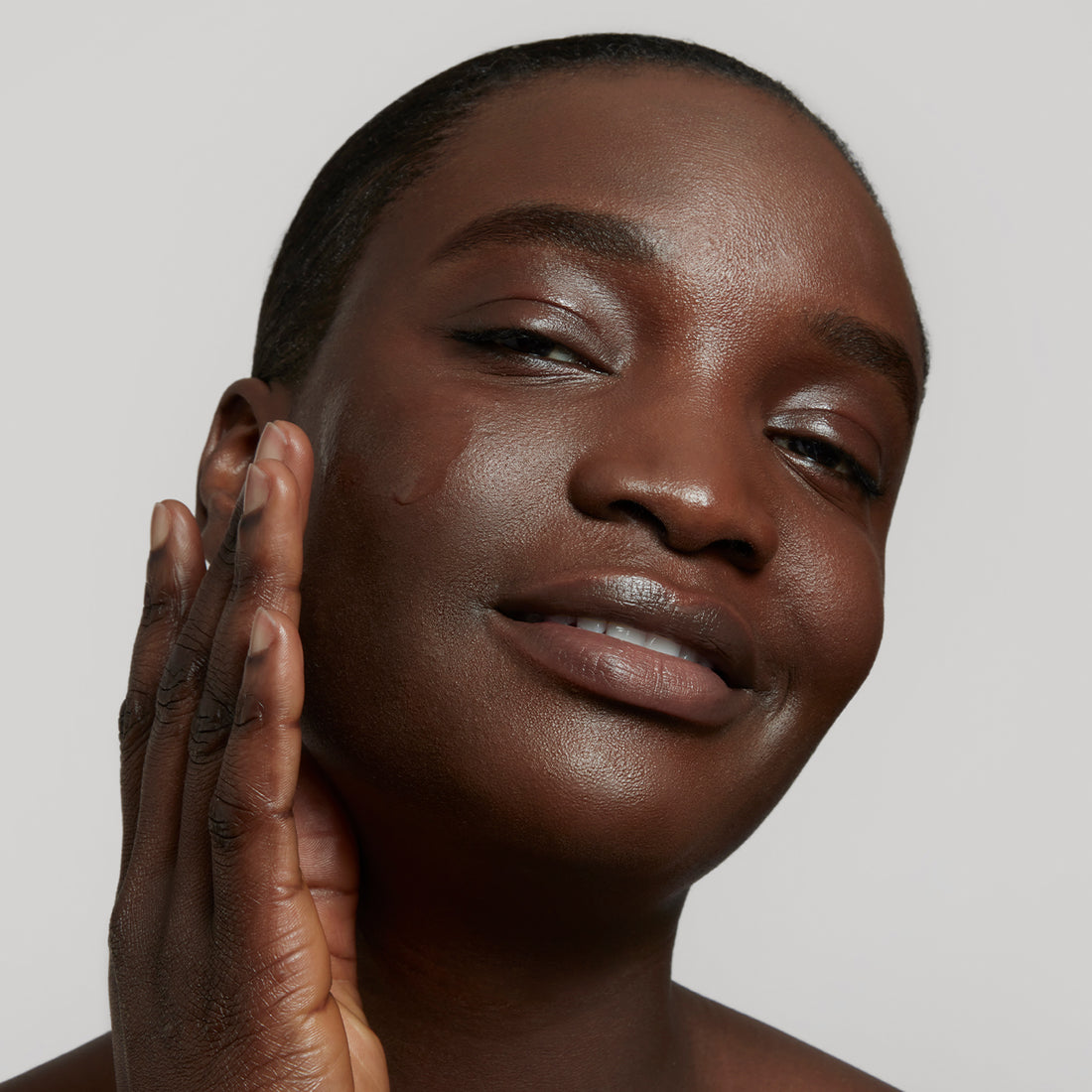

What causes collagen loss
From around age 25, our natural collagen production begins to decline by roughly 1% each year. While this gradual loss is a normal part of ageing, other external and lifestyle factors can speed up this process.
Sun exposure is a leading cause of collagen breakdown. UV rays penetrate deep into the skin, damaging collagen fibres and accelerate ageing. Environmental stressors like pollution and smoking add to the effect, while lifestyle factors such as poor diet, high sugar intake and stress can also take their toll. In particular, excess sugar triggers glycation, a process that stiffens collagen fibres and reduces skin’s elasticity.
Collagen benefits for your skin
Boosting collagen isn’t just about smoothing lines, it’s about supporting the skin’s long-term strength, resilience and youthful function as it ages.
Smoother, firmer skin
Collagen works hand in hand with elastin to maintain the skin’s structure and bounce. When collagen levels are healthy, skin appears taut, lifted and resilient. By supporting collagen and elastin, you can help improve skin elasticity, reduce sagging and achieve a firmer, more youthful-looking complexion.
Reduced fine lines and wrinkles
A natural decline in collagen makes skin thinner and more prone to creasing. By stimulating collagen production, skin looks plumper and smoother. Harnessing collagen for wrinkles helps smooth away visible lines, from crow’s feet to smile lines, while reinforcing skin’s strength to prevent deeper wrinkles from forming over time.
Improved skin texture
Healthy collagen levels are key to maintaining a smooth, even skin surface. By boosting collagen, you can refine texture, minimise rough patches and reduce enlarged pores. Over time, collagen support also helps soften post-acne marks and scars, revealing a clearer, more polished complexion.
Enhanced hydration retention
Collagen plays a vital role in supporting the skin barrier, helping it lock in moisture more effectively. With stronger collagen levels, skin appears dewy, supple and comfortable, while improved hydration helps prevent dryness, flaking and a lacklustre complexion.
Long-term ageing prevention
Consistently supporting collagen helps future-proof your skin, maintaining structure and resilience over time. By defending against premature ageing from sun, stress and pollution, collagen support delivers cumulative, visible results, promoting long-term skin health and longevity for a smoother, firmer, more youthful-looking complexion.
Brighter, more youthful appearance
Rising collagen levels help skin appear fresher, more radiant, and full of life. By promoting a more even tone, reducing dullness, and enhancing the skin’s natural vitality, collagen contributes to a healthy glow and a naturally youthful complexion.
Restoring your skin's collagen
While natural collagen loss can’t be completely reversed, there are ways to stimulate collagen and improve its appearance. Skin has the ability to produce new collagen when given the right support, and targeted treatments and lifestyle choices can make a real difference.
Collagen-boosting skincare plays a crucial role in maintaining structure, firmness, and overall skin health. Below are the main ways to support collagen stimulation and encourage a smoother, more resilient complexion:
Targeted topical skincare
One of the best ways to boost collagen is with topical ingredients that support its production. Vitamin C brightens and protects, vitamin A encourages renewal, peptides stimulate firmness, and sunscreen shields against UV damage. Medik8’s formulas harness these actives for visible, long-term results.
Support skin internally
A balanced, antioxidant-rich diet helps support collagen naturally from within, promoting healthier, stronger skin. While collagen supplements are popular, research on their effectiveness is still limited. Focusing on nutrient-dense foods remains one of the most reliable ways to support skin health and resilience.
Lifestyle habits
Every day choices play a key role in supporting collagen and overall skin health. Limiting sugar, avoiding smoking, managing stress, staying hydrated, and getting quality sleep all help maintain collagen levels, protect skin structure, and promote a firmer, more resilient complexion.
Explore professional treatments
Professional treatments like microneedling, laser resurfacing, radio frequency, and ultrasound therapy can stimulate collagen production deep within the dermis. By targeting the skin at multiple levels, these treatments help improve firmness, texture, and elasticity, supporting long-term skin health and a more youthful appearance.
Facial massage and gua sha
Regular facial massage or gua sha boosts circulation and supports lymphatic drainage, helping skin look firmer and more lifted. These techniques also encourage better absorption of collagen-boosting skincare, enhancing the benefits of your routine and promoting a healthier, more radiant complexion.
Understanding collagen support through topical skincare
Many skincare products marketed as “collagen-based” can be misleading. The truth is that applying collagen topically cannot rebuild the skin’s dermal collagen. Collagen molecules are typically too large to penetrate the skin, meaning they mainly act as surface moisturisers rather than long-term collagen restorers. While topical collagen can help hydrate and temporarily plump the skin, it won’t stimulate new collagen production.
That doesn’t mean collagen has no role in skincare. Ingredients that support the skin’s natural collagen production - such as vitamin C, peptides and retinoids - are far more effective as a collagen skin booster. Understanding what makes a product truly beneficial can help you choose the right collagen skin products to address concerns like fine lines, sagging or reduced elasticity.
Ultimately, the best way to boost collagen is through scientifically backed ingredients and treatments rather than relying on topical “collagen creams” alone.

Meet Advanced Pro Collagen+ Peptide Cream
Medik8’s Advanced Pro-Collagen+ Peptide Cream is a high-performance moisturiser designed to support skin’s collagen network. Formulated with pro-collagen peptides, it helps increase collagen production by 45%*, visibly improving firmness, elasticity, and reducing deep-set wrinkles in just 7 days**.
As one of our most effective skincare products that increase collagen, it delivers clinically proven results and is suitable for both day and night use. Perfect for targeting signs of skin ageing, it fits seamlessly into any routine focused on promoting skin longevity.
*Proven via ex vivo collagen study using Advanced Pro-Collagen+ Peptide Cream
**Proven via independent clinical study on Advanced Pro-Collagen+ Peptide Cream on 60 volunteers over 1 week
Collagen and skin longevity: why it matters for the future of your skin
Supporting collagen isn’t just about today, it’s about building a routine that maintains your skin’s strength, resilience and youthful glow for years to come. Medik8’s CSA PhilosophyⓇ of prevention, protection, and regeneration provides a framework for long-term skin health, combining effective routines, potent active ingredients, and protective measures.
Collagen-stimulation is built into every step of CSA: with vitamin C and vitamin A helping to stimulate collagen production, while sunscreen plays a vital role in protecting existing collagen. This results-driven approach can be easily personalised with targeted additions, such as peptides or our Advanced Pro-Collagen+ Peptide Cream, to further enhance results. By incorporating collagen-supporting products and habits into your daily regimen, you help preserve your skin’s structure, elasticity, and radiance, both now and in the future.
Build your CSA routine today!
FAQ's
Visible results vary depending on age, lifestyle, and routine. With consistent use of collagen-supporting ingredients like peptides and Vitamin C, improvements in firmness, elasticity, and smoothness can typically be seen within 4–12 weeks.
Collagen can help improve skin structure and firmness, but it cannot fully reverse sagging. Supporting your skin with collagen-boosting ingredients and treatments can reduce the appearance of sagging over time.
Not all collagen skincare is created equal. Topical collagen itself cannot penetrate deeply. To truly support collagen in the skin, look for products formulated with clinically-backed actives like peptides, retinoids, and antioxidants that stimulate natural collagen production, making them effective collagen skin boosters.
When choosing collagen skincare, it’s not about how much collagen is in the product; it’s about what helps your skin make more of its own.
Not quite. Collagen molecules are generally too large to penetrate the skin, so applying it topically won’t replenish the collagen that supports firmness and elasticity. Most “collagen creams” work by hydrating the surface, which can temporarily plump the skin, but they don’t stimulate real collagen production. For long-term results, targeted ingredients like vitamin C, peptides, and retinal are far more effective at encouraging your skin to produce its own collagen from within.
Yes. While natural collagen decline accelerates after the mid-20s, supporting collagen early can help maintain skin structure, elasticity, and long-term resilience.
You cannot replace lost collagen, but you can stimulate your skin to produce new collagen using science-backed ingredients, professional treatments, and healthy lifestyle habits.
improve overall skin appearance. Ingredients like Vitamin C in collagen-boosting products can help brighten and even skin tone.

Radhika Sen
Radhika Sen is a skincare enthusiast and beauty writer. She's always on the lookout for a stellar serum and moisturiser combination, topped by a sunscreen that protects and primes. Her idea of self care is to pop on a face mask, light a scented candle and call it an early night.
